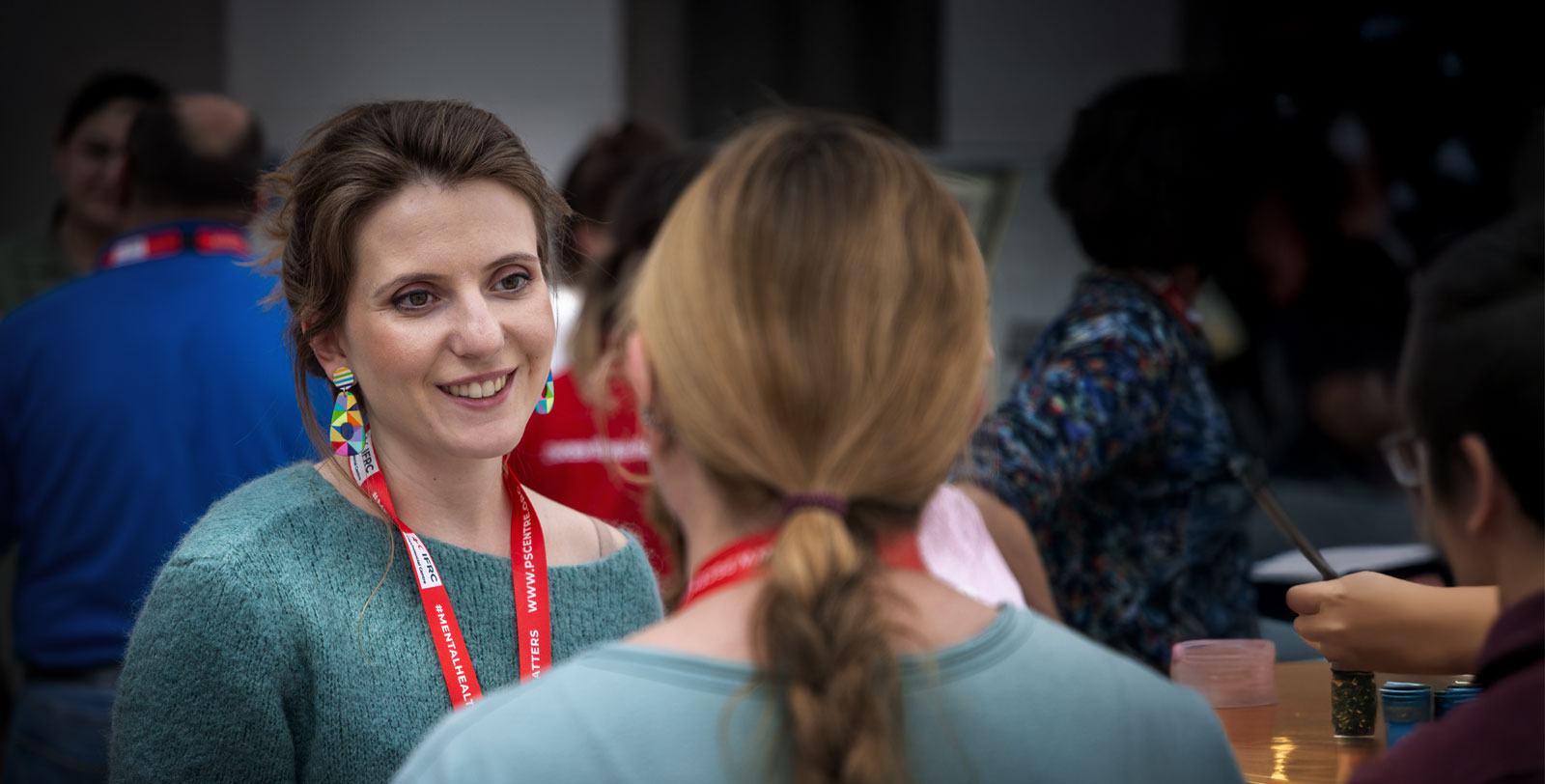The PS Centre regularly facilitates PFA training for participants from the entire world. Nurudeen Hussain is one of the participants for whom PFA has become a life-project. After having been trained by the PS Centre, he travels around Nigeria to teach PFA.
When Nurudeen Hussain decided to attend the PS Centre training on Psychosocial First Aid (PFA) in 2018 he did not expect that it was about to become his primary priority. But it did. In fact so much so that he now spends the majority of his time travelling around Nigeria and training others in the basic principles of PFA.
In his work as a training officer at the Nigerian Red Cross Society, Nurudeen trains staff and volunteers in disaster management and child protection in emergencies. Previously, he had heard only little about PFA but did not find it very important.
“When I did the training, I came to understand how important it is to integrate PFA in our work. As everyone needs PFA.”
Nurudeen explains that during a practical exercise he became aware of the look, listen and link framework, which is an integrated part of the PS Centre PFA training. He came to realize that emergency responders in Nigeria know a lot about how to provide basic physical needs for people in emergencies (look). But know almost nothing about active listening (listen) and linking people to the resources they need (link).
“If we listen actively we will know the person’s need and then we can link them to the right person or the help they need”, says Nurudeen.
Today, Nurudeen continues his work for the Nigerian Red Cross Society but he cannot imagine doing it without using the PFA skills he learned during the PS Centre training. Shortly after the training he reached out to the volunteers in Nigerian Red Cross Society to share his newfound knowledge about PFA and how they could apply it in their daily work.
“Attending the PS Centre PFA training has become a capacity for me. Now I am a goal, a resource person to my national society. And other branches are eager to learn about PFA.”
In Nigeria Nurudeen has become a role model for other Red Cross workers who want to learn about PFA.
The practical teaching method is an important aspect in his PFA training. His training sessions are interactive and with group discussions, not long power-point presentations. That was a key lesson he learned from being a participant himself in the PS Centre PFA training.
After every PFA training he experiences how the practical approach is paying off:
“Participants during my last training on PFA had been trained in PFA by several organizations before. But they didn’t understand what PFA was until I trained them using the tools from the PS Centre training,” says Nurudeen.
In the future Nurudeen will keep on advocating for PFA and, of course, keep teaching how to provide it. The demand for more knowledge about PFA is out there, he says, not only in his branch and at his plateau of the Nigerian Red Cross Society, but even staff at the national headquarters have invited him to teach them about PFA.
He wishes that in the future all emergency responders in Nigeria will have a fundamental PFA skill-set. Because, as he says, “the vulnerable people they meet, need PFA.”
Visit the PS Centre website for more information on up-coming PFA training sessions


